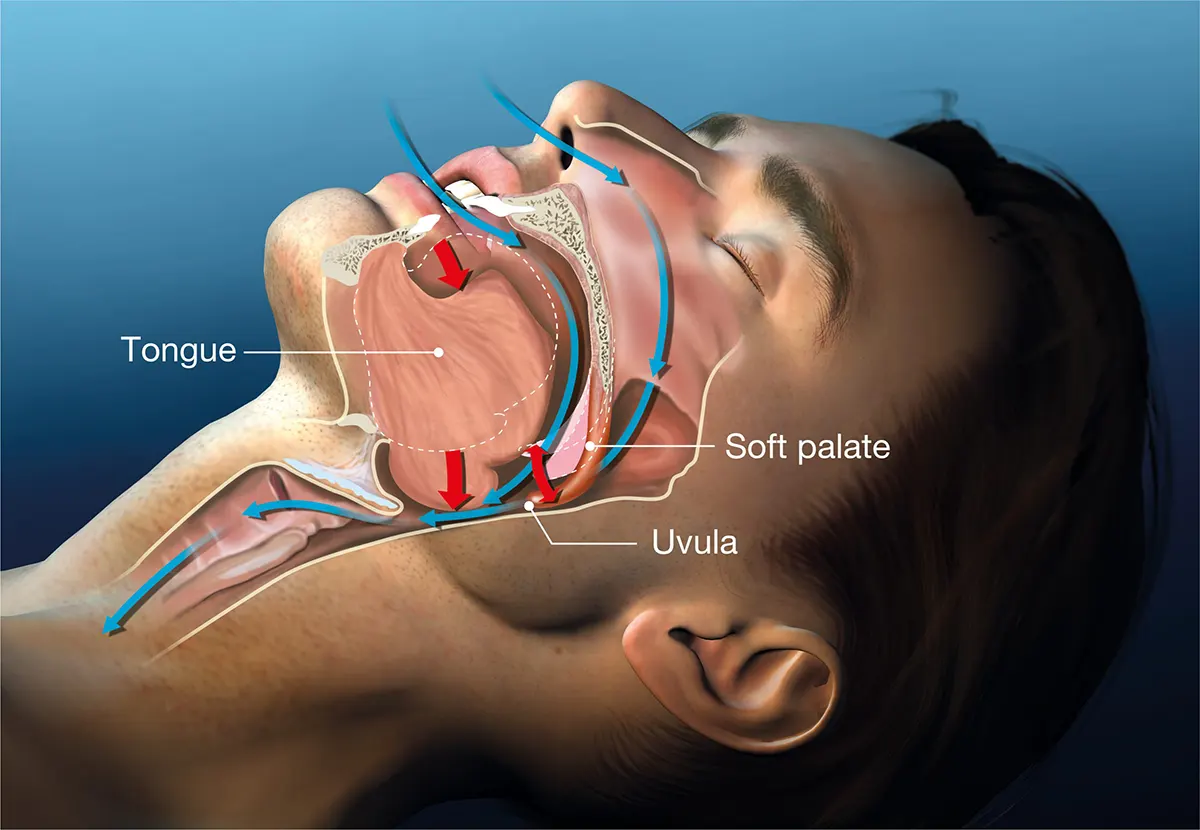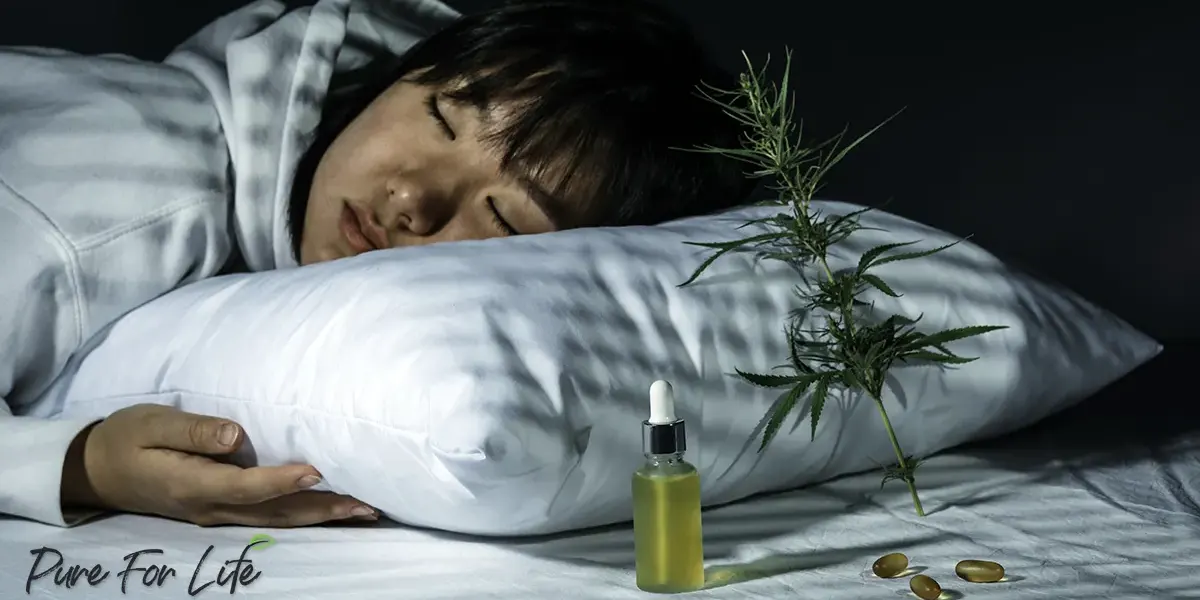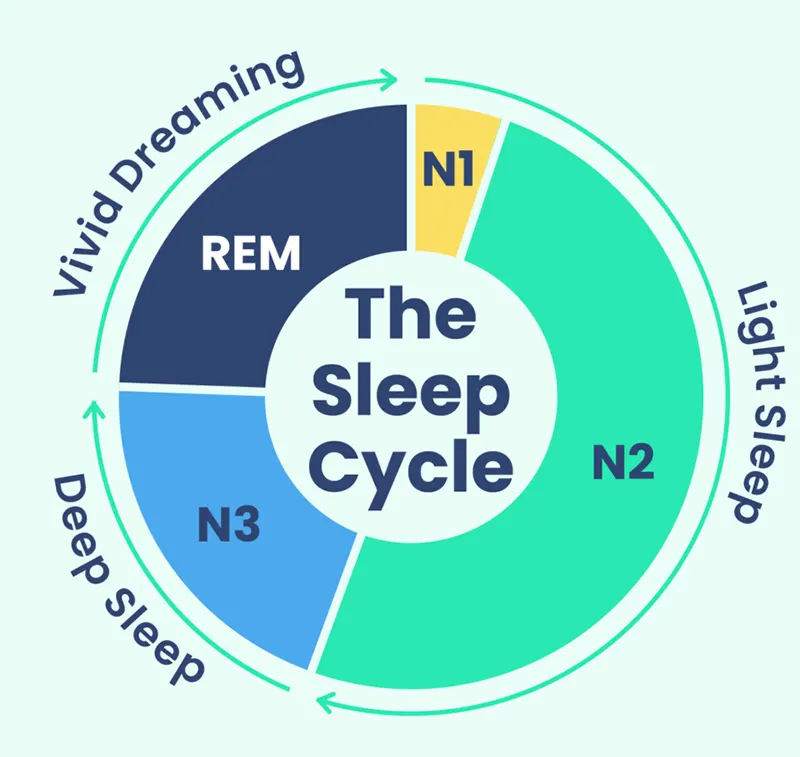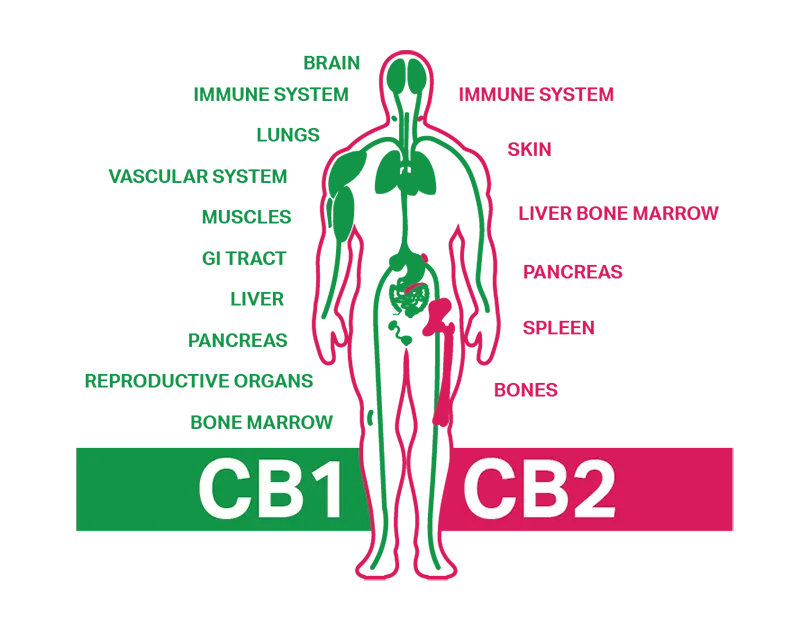Introduction
In our fast-paced world, achieving quality sleep has become increasingly elusive for many. Sleep is not merely a luxury; it’s a fundamental pillar of good health and overall well-being. Yet millions of people struggle with sleep disorders such as insomnia, sleep apnea, and restless leg syndrome, which impact their daily lives and long-term health.
Amidst this struggle, the spotlight has turned to cannabidiol (CBD) as a potential natural remedy for promoting better sleep. CBD, a compound derived from the cannabis plant known for its therapeutic properties, has gained significant attention for its purported ability to support sleep quality and regulate sleep patterns.
This article explores the relationship between CBD and sleep, exploring how this intriguing cannabinoid may be vital to unlocking restorative and rejuvenating sleep. We’ll uncover the science behind CBD’s effects on sleep, discuss its potential benefits, address common questions and concerns, and provide practical insights for incorporating CBD into your bedtime routine.
Join us as we explore the secrets of CBD and its promising role in facilitating better rest and a more refreshed tomorrow.
Understanding Sleep and Its Importance
Sleep is a complex physiological process vital to maintaining overall health and well-being. It is essential for cognitive function, emotional regulation, immune system function, and physical restoration. To understand the importance of better sleep, it’s crucial to grasp the fundamental concepts of sleep cycles and stages.
 Sleep Cycles and Stages:
Sleep Cycles and Stages:
Sleep Cycles and Stages: REM (Rapid Eye Movement) Sleep is marked by rapid eye movements, vivid dreams, and heightened brain activity. This stage is crucial for cognitive function and emotional regulation. Non-REM (NREM) Sleep encompasses three phases: NREM Stage 1 involves transitioning from wakefulness to sleep, characterized by light sleep and muscle relaxation. NREM Stage 2 is a deeper sleep stage where brain waves slow down and body temperature drops. NREM Stage 3, also known as slow-wave sleep, is essential for physical restoration, hormone regulation, and immune system function.
Importance of Quality Sleep:
Adequate sleep is crucial in supporting various aspects of health and well-being. Physical Health promotes cardiovascular health, regulates hormones (such as growth hormone), and boosts immune function. For Mental Health, sleep is essential for memory consolidation, emotional processing, and regulating mood. Overall Well-being is positively impacted by quality sleep, contributing to higher energy levels, increased productivity, and an enhanced overall quality of life.
Impact of Sleep Disorders:
- Insomnia: Difficulty falling or staying asleep, leading to daytime fatigue and impaired functioning.
- Sleep Apnea: Breathing interruptions during sleep, affecting oxygen supply and causing daytime sleepiness.
- Restless Leg Syndrome: Uncomfortable sensations in the legs leading to an irresistible urge to move them, disrupting sleep.
Understanding the significance of sleep and the impact of sleep disorders underscores the importance of exploring effective interventions, such as CBD, to promote healthy sleep patterns and improve overall wellness.
Common Sleep Disorders
Sleep disorders can significantly impact the quality and duration of sleep, leading to daytime fatigue, impaired cognitive function, and overall diminished well-being. Understanding the nature of these disorders is essential for identifying effective interventions and treatments. Here are some of the most prevalent sleep disorders:
1. Insomnia
Insomnia is a sleep disorder characterized by difficulty falling asleep, staying asleep, or experiencing non-restorative sleep. It can be triggered by various factors, including stress, anxiety, depression, medication side effects, or underlying medical conditions. Insomnia symptoms include persistent sleep disturbances, daytime fatigue, irritability, and impaired concentration.
2. Sleep Apnea

3. Restless Leg Syndrome (RLS)
Restless Leg Syndrome (RLS) is characterized by uncomfortable sensations in the legs, such as crawling, tingling, or burning sensations, that worsen at rest and improve with movement. The causes of RLS can be idiopathic (of unknown origin) or secondary to underlying conditions such as iron deficiency, kidney failure, or peripheral neuropathy. Common symptoms of RLS include an uncontrollable urge to move the legs, particularly at night, which can disrupt sleep and cause restlessness.
4. Narcolepsy
Narcolepsy is a neurological disorder characterized by excessive daytime sleepiness and sudden uncontrollable episodes of sleep known as narcoleptic attacks. Symptoms of narcolepsy include excessive daytime sleepiness, sudden loss of muscle tone (cataplexy), hallucinations, and sleep paralysis. The underlying cause of narcolepsy is believed to be the loss of hypocretin-producing neurons in the brain.
5. Parasomnias
Parasomnias are a group of sleep disorders characterized by abnormal behaviors or movements during sleep. These behaviors can include sleepwalking, sleep talking, nightmares, and night terrors. The causes of parasomnias can vary and may be triggered by factors such as stress, genetics, or underlying sleep disorders. Symptoms of parasomnias include abnormal sleep behaviors or experiences that disrupt sleep continuity, leading to disturbances in sleep quality and overall restfulness.
These common sleep disorders highlight individuals’ diverse challenges in achieving restorative sleep. If you suspect you have a sleep disorder, consult a healthcare professional for proper diagnosis and treatment. In the next section, we’ll explore how CBD may offer potential benefits in managing sleep disorders and promoting better sleep quality.
The Role of CBD in Sleep Regulation
Cannabidiol (CBD), a non-intoxicating compound derived from the cannabis plant, has gained attention for its potential role in promoting sleep and managing sleep-related issues. While research is ongoing, several mechanisms suggest how CBD may influence sleep regulation:
 Interaction with the Endocannabinoid System (ECS)
Interaction with the Endocannabinoid System (ECS)
CBD interacts with the body’s endocannabinoid system (ECS), which regulates various physiological functions, including sleep. The ECS comprises cannabinoid receptors (CB1 and CB2) and endocannabinoids produced naturally by the body. CBD may modulate ECS activity, potentially influencing sleep-wake cycles by interacting with these receptors and promoting balance within the endocannabinoid system. This interaction highlights the potential of CBD as a natural compound that can support healthy sleep patterns and overall well-being through its effects on the ECS.
Anxiolytic (Anti-Anxiety) Effects
Anxiety and stress are frequent contributors to sleep disturbances, including insomnia. CBD exhibits anxiolytic (anti-anxiety) properties by influencing serotonin receptors (specifically 5-HT1A receptors). By interacting with these receptors, CBD may reduce anxiety levels and promote relaxation, creating conditions more conducive to sleep. This suggests that CBD’s ability to modulate serotonin receptor activity could help alleviate stress-related sleep issues and improve overall sleep quality.
Pain Relief and Muscle Relaxation
Chronic pain conditions and muscle tension often disrupt sleep patterns. CBD possesses analgesic (pain-relieving) and anti-inflammatory properties that may help alleviate pain and induce muscle relaxation, improving sleep quality. By targeting pain and inflammation, CBD can reduce discomfort that interferes with falling asleep or staying asleep, promoting a more restful and rejuvenating sleep experience. This suggests that CBD’s ability to address underlying pain issues may contribute to its positive impact on overall sleep quality and well-being.
Regulation of Circadian Rhythm
CBD, known as the circadian rhythm, may influence the body’s internal clock, which regulates sleep-wake cycles. By modulating neurotransmitter activity and hormone secretion, CBD has the potential to enhance circadian rhythm synchronization. This means that CBD could promote a balanced sleep-wake cycle by positively impacting the body’s natural rhythm of wakefulness and rest. Further research is needed to understand how CBD affects circadian rhythms and its implications for promoting healthy sleep patterns.
REM Sleep Modulation
Studies suggest that CBD may influence REM (Rapid Eye Movement) sleep, which is the stage of sleep associated with vivid dreams and cognitive processing. The impact of CBD on REM sleep is an area of interest for researchers studying its effects on sleep architecture. By modulating REM sleep, CBD may potentially play a role in optimizing sleep patterns and cognitive functions during this critical stage of the sleep cycle. Further research is needed to fully understand how CBD interacts with REM sleep and its implications for overall sleep quality and cognitive health.
It’s important to note that individual responses to CBD vary, and more clinical research is needed to understand CBD’s specific effects on sleep regulation fully. Factors such as dosage, timing, and product quality can influence outcomes.
Conclusion
Incorporating CBD into your sleep routine promises to enhance sleep quality and promote overall well-being. CBD’s potential benefits, including its ability to promote relaxation, reduce anxiety, and alleviate pain, make it a valuable addition to bedtime rituals.
At Pure for Life™, we are committed to providing high-quality CBD products to support your journey to better sleep. Our CBD oils, capsules, edibles, and topicals are designed to cater to individual preferences and lifestyle needs. Whether you prefer the convenience of CBD capsules, the fast-acting effects of CBD oil, or the soothing relief of CBD topicals, we have products tailored to enhance your sleep experience.
Discover the difference that Pure for Life™ CBD products can make in your sleep quality and overall wellness. Prioritize restful and rejuvenating sleep with the support of nature’s therapeutic cannabinoid.








 Sleep Cycles and Stages:
Sleep Cycles and Stages: Interaction with the Endocannabinoid System (ECS)
Interaction with the Endocannabinoid System (ECS)

